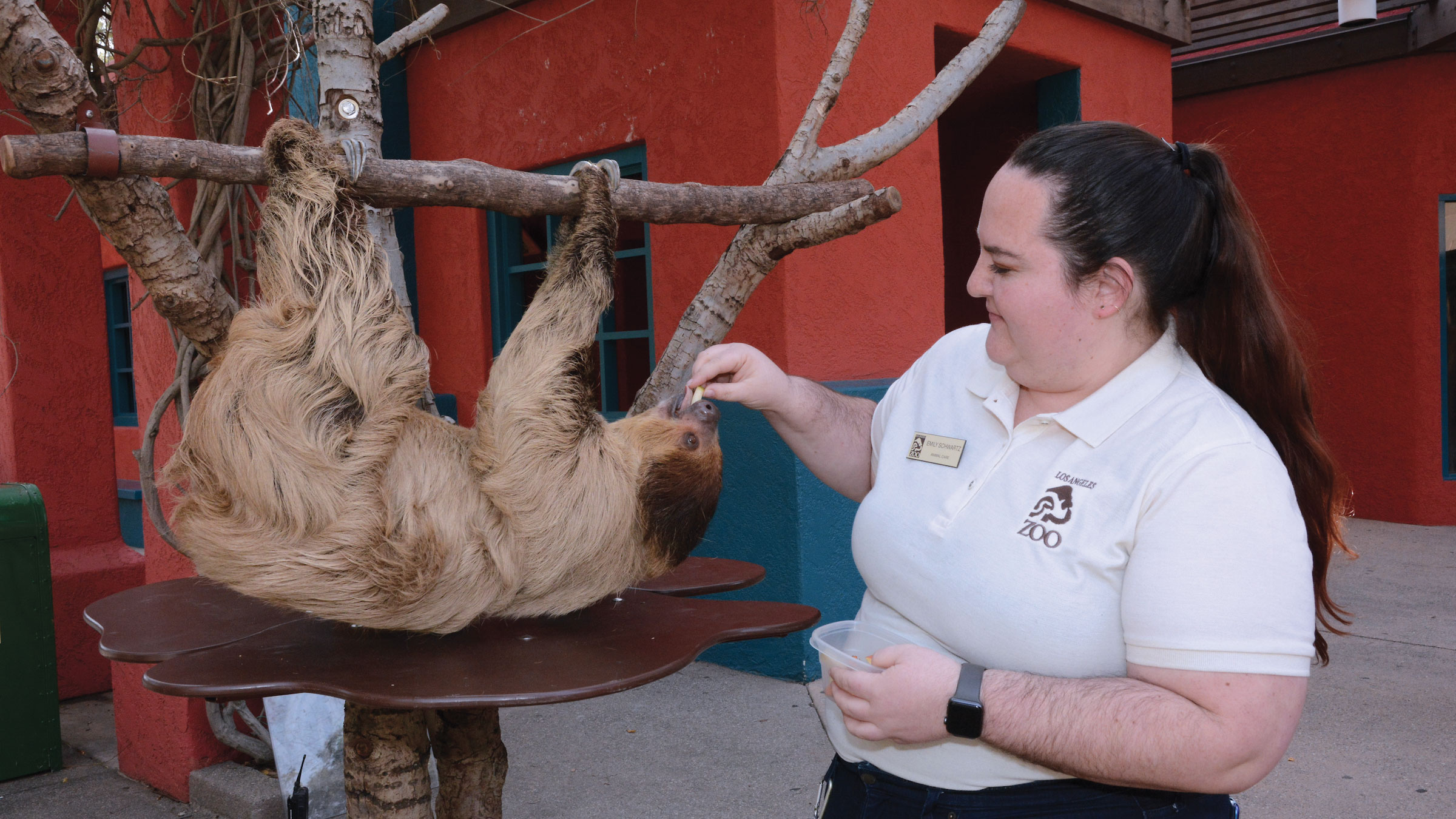Wild Appetites
Zoo nutritionist Emily Schwartz feeds the creatures that give Los Angeles a connection to the animal kingdom.

Every morning, when Emily Schwartz (M.S. Agriculture ’15) gets out of her car, she gets an audible reminder of why she loves her job.
It’s the roar of lions and the calls of primates and elephants.
Last year, Schwartz became the first full-time nutritionist for the Los Angeles Zoo and Botanical Gardens. Her job: planning for the nutritional needs of the zoo’s collection of more than 1,400 animals.
“Whenever I hear that, I just think, ‘Wow, I am so lucky to work at this incredible facility,’” she said. “It’s really great to see the relationships the keepers have with their animals, but also the relationships that we foster between the animals and the guests that come to visit us.”
After completing her undergraduate studies at the University of Kentucky, Schwartz took the advice of her dad, alumnus Stephen Schwartz (Farm Science ’72) to check out the graduate program at Cal Poly. After speaking with Professor Mark Edwards, she found a perfect fit and accepted an offer to study under Edwards with the goal of becoming a horse nutrition specialist. But she discovered that knowledge of equine dietary needs was also a good starting point for more exotic species.
After earning her master’s degree, Schwartz got a job preparing food for the animals at the Living Desert Zoo and Gardens in Palm Desert, and then as a wildlife rehabilitation specialist at Pacific Wildlife Care in Morro Bay. Eventually Edwards recommended her for the job opening at the Los Angeles Zoo, a position he had heard about through his professional network.
We really strive to educate the people about why animals are important and how the public can help us support our animals as well as their wild counterparts.
At her new job, Schwartz oversees an eight-person commissary staff that prepares individualized meal kits for each of the zoo’s animals, which the keepers then assemble for each of the animals within their care — like a Blue Apron service for animals. She works closely with the keepers and veterinary staff to monitor the animals’ health and any special dietary needs that may arise, and adjust accordingly.
“I’m thinking of one red-capped mangabey in particular that is incredibly picky,” she said, describing a small western African monkey whose primary diet consists of fruits and seeds. “If animals don’t like their diets, they’re probably not getting the best balance of nutrients, so we have to figure out how to get them the nutrients they need without wasting food.”
It’s the kind of highly adaptive work that’s perfectly suited for a Cal Poly grad.
“The Learn by Doing motto has followed me throughout my career, whether I’m learning something new or teaching someone else something new,” said Schwartz. “There was just such a community, especially in the Animal Science Department, that really fosters and helps to create the best students who will grow into mature employees in different areas.”
Schwartz is proud of her work and the role that facilities like the Los Angeles Zoo, with its focus on conservation, play in their communities.
“The zoo is a great resource — visitors can come and have a great fun experience all while learning about the incredible animals that we have, the conservation efforts that we support, and the challenges facing animals in the wild,” she said. “We really strive to educate the people about why animals are important and how the public can help us support our animals as well as their wild counterparts.”


